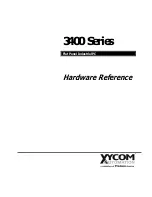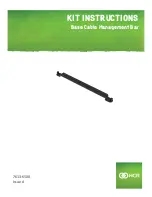
2-15
Installation
2Unpacking to Installation
2.2.3 Installation procedures
The installation procedure of the robot arm is shown below.
(1) RH-3FRH/6FRH/12FRH/20FRH series
Fig.2-6 : Installation dimensions (RH-3FRH/6FRH/12FRH/20FRH series)
1) The robot installation surface has been machine finished. Use the installation holes (RH-3FRH/6FRH: 4-φ9
holes, RH-12FRH/20FRH: 4-φ16 holes) opened at the four corners of the base, and securely fix the robot
with the enclosed installation bolts (hexagon socket bolts).
2) Install the robot on a level surface.
3) It is recommended that the surface roughness of the table onto which the robot is to be installed by Rz25 or
more. If the installation surface is rough, the contact with the table will be poor, and positional deviation
could occur when the robot moves.
4) When installing, use a common table to prevent the position of the devices and jigs subject to robot work
from deviating.
5) The installation surface must have sufficient strength to withstand the arm reaction during operation, and
resistance against deformation and vibration caused by the static (dynamic) load of the robot arm and
peripheral devices, etc.
6) After installing the robot, remove the self-supporting plate, hanging jig, and fixing plate.
㻝㻡㻜
㻢㻜
㻝㻞㻜
㻥㻜
㻥㻞
㻥㻞
㻝㻤㻜
㻝㻡㻜
㻝㻣㻠
㻝㻢㻜
㻝㻤㻞
㻞㻝㻞
㻠㻙䃥㻥㻌㼕㼚㼟㼠㼍㼘㼘㼍㼠㼕㼛㼚㻌㼔㼛㼘㼑㼟
㻞㻙䃥㻢㻌㼔㼛㼘㼑㼟
㻔㼒㼛㼞㻌䃥㻤㻌㼜㼛㼟㼕㼠㼕㼛㼚㼕㼚㼓㻌㼜㼕㼚㼟㻕
㻔㻵㼚㼟㼠㼍㼘㼘㼍㼠㼕㼛㼚㻌 㼞㼑㼒㼑㼞㼑㼚㼏㼑㻌㼟㼡㼞㼒㼍㼏㼑㻕
㻾㼦㻞㻡
㻾㼦㻞㻡
㻔㻵㼚㼟㼠㼍㼘㼘㼍㼠㼕㼛㼚㻌
㼞㼑㼒㼑㼞㼑㼚㼏㼑㻌㼟㼡㼞㼒㼍㼏㼑㻕
㻠㻙䃥㻝㻢㻌㼕㼚㼟㼠㼍㼘㼘㼍㼠㼕㼛㼚㻌㼔㼛㼘㼑㼟
㻝㻤㻜
㻝㻞㻜
㻝㻞㻞
㻞㻠㻜
㻝㻞㻞
㻞㻜㻜
㻞㻜㻜
㻔㻵㼚㼟㼠㼍㼘㼘㼍㼠㼕㼛㼚㻌
㼞㼑㼒㼑㼞㼑㼚㼏㼑㻌㼟㼡㼞㼒㼍㼏㼑㻕
㻔㻵㼚㼟㼠㼍㼘㼘㼍㼠㼕㼛㼚㻌 㼞㼑㼒㼑㼞㼑㼚㼏㼑㻌㼟㼡㼞㼒㼍㼏㼑㻕
㻞㻠㻞
㻞㻤㻜
㻔㻝㻡㻤㻕
㻞㻞㻜
㻤㻜
㻾㼦㻞㻡
㻾㼦㻞㻡
㻞㻙䃥㻢㻌㼔㼛㼘㼑㼟
㻔㼒㼛㼞㻌䃥㻤㻌㼜㼛㼟㼕㼠㼕㼛㼚㼕㼚㼓㻌㼜㼕㼚㼟㻕
(4箇所)
バネ座金
平座金
20
4-M8×40
F
H
F
V
F
H
F
H
F
H
M
L
M
L
F
V
M
T
(Four positions)
Spring washer
Plain washer
<Detail of installation dimension>
(Base section of a robot arm)
RH-3FRH/6FRH series
RH-12FRH/20FRH series
4-M8x40 (RH-3FRH/6FRH series)
4-M12x45 (RH-12FRH/20FRH series)
















































